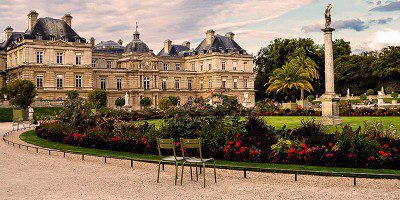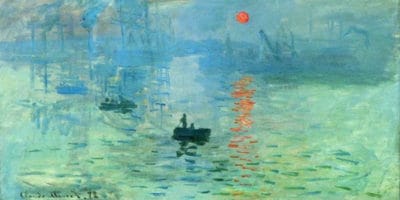
Gough Whitlam at the launch of the Australian Conservation Foundation’s newsletter in 1973. Photo by Australian Conservation Foundation- Wikimedia commons
Top 10 Fascinating Facts about Gough Whitlam
Edward Gough Whitlam (11 July 1916 – 21 October 2014) was Australia’s twenty-first prime minister, serving from 1972 to 1975.
He was the longest-serving national leader of the Australian Labor Party (ALP), leading a revolutionary government that resulted to his replacement as prime minister after being dubiously ignored by Australia’s governor-general, Sir John Kerr, at the height of the 1975 national emergency. Whitlam is the only Australian prime minister who has been deposed in this manner.
Whitlam worked as an air navigator in the Royal Australian Air Force for four years during WWII before becoming a barrister. He was appointed to the Australian House of Representatives for the first time in 1952, becoming a member of parliament (MP) for the Werriwa division.
Whitlam was appointed deputy leader of the Labor Party in 1960, and after Arthur Calwell’s retirement in 1967, he was appointed leader of the party and became Leader of the Opposition.
After ultimately losing the 1969 state election to John Gorton, Whitlam led Labor to triumph at the 1972 election, after 23 years of continuous Coalition government.
1.He was an elected prime minister for less than 3 years
Gough Whitlam was prime minister for just 1071 days, far below Julia Gillard, but he oversaw a variety of important policy changes, such as national healthcare, free university education, Indigenous land rights, and no-fault divorce.
2.Gough implemented free university education for all citizens in Australia
“When the state provides chances for one citizen, it creates chances for all citizens. When any of us is poor, we all suffer as citizens. Economic inequality is both a national and an individual waste.
When any of us is excluded a good education, we are all undermined. Due to this human and national waste, the nation is poorer – a poorer economic growth, a poorer civilisation.” In 1969, Gough Whitlam was on the campaign trail.
Whitlam attended Sydney’s highly regarded Knox Grammar School, but he saw the disparity in possibility between private and public school students as “morally unfair and sociologically highly inefficient.”
The institution of the The States Grants (Schools) Act 1973 and the Schools Commission Act 1973 to establish a modern structure of equitable financial support was part of Whitlam’s supercharger start to office.
The elimination of university fees on January 1, 1974 was a widely discussed history, both by those who benefited from it and those who missed out when fees were reintroduced.
Former Prime Minister Julia Gillard, as well as numerous other influential Australians, attribute their chances and achievements to free university education.
The regulation also gave rise to the new invention of “mature-age students,” with an influx of older Australians obtaining degrees in the 1970s.
3.The successful politician improved the priorities of women by easy access to contraceptives

Gough Whitlam in 1962. Photo by National Archives of Australia- Wikimedia commons
The Whitlam government placed a high priority on fairness, creating the single mother’s benefit and assigning a women’s consultant to the prime minister.
The Whitlam government removed VAT tax from the birth control pill and made oral contraceptives accessible through the Pharmaceutical Benefits Scheme in its first week, foreshadowing future policy changes.
4.His earlier life during his childhood
Gough, Edward Whitlam was born to Martha (née Maddocks) and Fred Whitlam in a family home in ‘Ngara,’ 46 Rowland Street, Kew, a Melbourne suburb. Whitlam senior’s father was a national public servant who later served as Commonwealth Crown Lawyer, and his father’s participation in human rights concerns had a massive effect on his son.
Seeing as his maternal grandfather was also named Edward, he was always addressed by his middle name, Gough, which was derived from his paternal grandfather, who was named after the British soldier Field-Marshal Hugh Gough, 1st Viscount Gough.
Fred Whitlam was promoted to deputy Crown solicitor and relocated to Sydney in 1918. The family first lived in Mosman, on Sydney’s North Shore, and then in Turramurra.
Gough started his education at Chatswood Church of England Girls’ School when he was six years old (early primary schooling at a girls’ school was not uncommon for small boys at the period). Following one year there, he went to Mowbray House School and Knox Grammar School in Sydney’s suburbs.
5.Gough’s government started the process of decolonisation for Papua New Guinea shortly after its election in 1973
The Australian government had controlled Papua since 1906, and New Guinea since 1919. The Whitlam government initiated the process of gaining independence soon after its election in 1973, and Papua New Guinea gained full independence two years later on September 16, 1975.
6.He made a massive change to the drainage systems for residential areas

Gough Whitlam at the launch of the Australian Conservation Foundation’s newsletter in 1973. Photo by Australian Conservation Foundation- Wikimedia commons
Whitlam is acknowledged for his huge ideas, however, his legacy also includes the backyard dunnie as well as the septic tank.
Whitlam understood the needs of the battler belt as the participant for Werriwa, which was centered on the relatively modern but majorly undeveloped suburb of Cabramatta.
His administration set a goal of leaving no urban home unfinished. The Whitlam administration provided financial support specifically to local government units for urban renewal, flood control, and tourism promotion.
Highways connecting state capitals were funded by government aid.
7.Whitlam’s time in the government made him a very powerful politician all around the world
Gough is arguably Australia’s most intriguing political leader to date. This clarifies why he gets more space than anyone else in Michelle Grattan’s modified collection Australian Prime Ministers (New Holland, 2000), regardless of the fact that Whitlam only served two terms, especially in comparison to Billy Hughes, Joseph Lyons, Robert Menzies, Malcolm Fraser, Bob Hawke, and John Howard, who all served three or more.
8.He was in a rush to pull out the military from the Vietnam War as soon as he was in power
Whitlam, in opposition, called the Vietnam War “catastrophic and delusory.” When he took office, he immediately abrogated compulsory military service and cleared all attentive protestors from prison.
The drawdown from Vietnam began under Liberal Prime Minister John Gorton in 1970, and his replacement, Billy McMahon, declared supplemental troop withdrawals.
The Whitlam government declared the drawdown of Australia’s remaining troops, who were now military advisers, on its seventh day in power. Australia’s participation in the war officially ended on January 11, 1973.
9.Gough created a radio station known as Triple J
Whitlam established Triple J as a radio station targeted directly at to the youth of Australia. Triple j, as it is currently recognized, has attained middle age but remains popular with its intended audience.
10.He had a huge impact on the laws and regulations of marriages and women rights

Gough Whitlam in 1962. Photo by National Archives of Australia- Wikimedia commons
Whitlam’s Family Law Act of 1975 established “no-fault divorces.” A national Family Court was created, however, not before 1976, under Malcolm Fraser.
Access to birth control is no longer subject to sales tax.
Planning a trip to Paris ? Get ready !
These are Amazon’s best-selling travel products that you may need for coming to Paris.
Bookstore
- The best travel book : Rick Steves – Paris 2023 – Learn more here
- Fodor’s Paris 2024 – Learn more here
Travel Gear
- Venture Pal Lightweight Backpack – Learn more here
- Samsonite Winfield 2 28″ Luggage – Learn more here
- Swig Savvy’s Stainless Steel Insulated Water Bottle – Learn more here
Check Amazon’s best-seller list for the most popular travel accessories. We sometimes read this list just to find out what new travel products people are buying.













